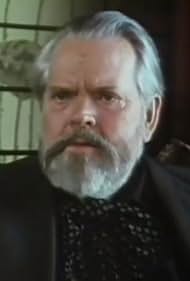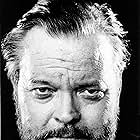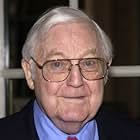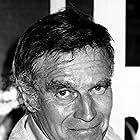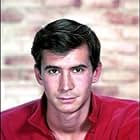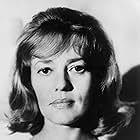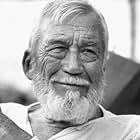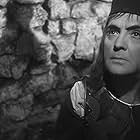The Orson Welles Story: Part 1
- L’episodio è andato in onda il 18 mag 1982
- 1h 51min
VALUTAZIONE IMDb
8,9/10
76
LA TUA VALUTAZIONE
Aggiungi una trama nella tua linguaPart 1 of an in-depth interview exploring Welles' achievements and frustrations during his life in film and theatre.Part 1 of an in-depth interview exploring Welles' achievements and frustrations during his life in film and theatre.Part 1 of an in-depth interview exploring Welles' achievements and frustrations during his life in film and theatre.
Foto
Trama
Lo sapevi?
- Citazioni
Orson Welles: I began at the top and I've been working my way down ever since.
- ConnessioniFeatured in Il mago - L'incredibile vita di Orson Welles (2014)
Recensione in evidenza
The BBC repeat of the The Orson Welles Story was prefaced by an introduction from Alan Yentob. The former editor of the Arena strand and head of BBC programming.
He talks about how they managed to set up an interview with Welles via his agent. Then hung around in LA as Welles recovered from a flu. Then suddenly being told to head to a Las Vegas hotel. The interview was recorded in his hotel suite.
When this was first shown in 1982 it quickly became celebrated. The show won awards and it was a new kind of an in depth interview. A truthful, warts and all examination of a person's life.
Yentob called Welles elusive. He meant that in a sense that you never knew what the truth was with him. Welles did chat shows. He was a raconteur, he told tall tales. Others had made up stories about Welles. Things could get lost in translation when talking to foreign journalists. He did once make a documentary called F for Fake.
In the first part of this interview it becomes apparent that Welles has a rapport with Leslie Megahey who is questioning him. He is also the narrator and he has done his research.
As with Welles life it very much begins with him at the top. The Mercury Theatre, the live radio broadcast of The War of the Worlds. Then directing and starring in Citizen Kane. The furore that it's release caused. How the press spurred on by Randolph Hearst wanted to set him up by placing an under aged girl in his hotel room. A policeman tipped Welles off.
The documentary challenges Pauline Kael's assertion that Welles never co-wrote the screenplay of Citizen Kane. Welles won his sole Oscar as screenwriter for Citizen Kane with Herman Mankiewicz. It turns out that Kael never asked Welles about it or the secretaries who typed up his part of the screenplay.
Director and writer Peter Bogdanovich track down obscure articles that validated Welles contribution the screenplay. Something Kael never did. The show also talked to Robert Wise then a young editor on the movie.
As others have said. Maybe Citizen Kane just assembled itself without a director and star!
The rot started in Welles next movie. The Magnificent Ambersons which he wrote and directed. RKO seemed to be happy with the rushes. Then the production company recut the movie while Welles was in South America.
Robert Wise was involved in the re-editing and the reshoots. He tried to justify his stance. It seems the previews of the movie went down badly as it had a downbeat ending. With Welles not around they had to make the best of a bad job.
Welles reputation never recovered from that. He acquired a reputation of being profligate, difficult to work with. Welles ending up burning bridges with some of his contributors.
He did make other films but was always under the cosh. Charlton Heston was hired for a routine thriller. He did not think much of the story. Welles was hired as a co-star. According to this documentary Heston suggested Welles to direct and the producers pondered about it.
I think Heston downplayed it. In real life Heston fought tooth and nail to get Welles in as director. That he would shape up the screenplay and bring a creative touch.
Heston was right. Touch of Evil might have been Welles last great film as director. The long opening crane shot of this noir thriller has been copied by others. Welles is physically grotesque as the corrupt sheriff who fits up suspects. He also drew one last notable performance from Marlene Dietrich who has the last words in the movie. It could easily apply to Welles himself.
Once again the production company dumped the film even though they were happy with the rushes. Touch of Evil quickly acquired a cult reputation. Now it is regarded as one of the top movies of all time.
In his introduction Yentob claimed other Hollywood stars had copies of this documentary. From Mel Brooks to Tom Cruise. The reason was simple; it is more than a life of a Hollywood great. It is a cautionary tale about Hollywood itself.
He talks about how they managed to set up an interview with Welles via his agent. Then hung around in LA as Welles recovered from a flu. Then suddenly being told to head to a Las Vegas hotel. The interview was recorded in his hotel suite.
When this was first shown in 1982 it quickly became celebrated. The show won awards and it was a new kind of an in depth interview. A truthful, warts and all examination of a person's life.
Yentob called Welles elusive. He meant that in a sense that you never knew what the truth was with him. Welles did chat shows. He was a raconteur, he told tall tales. Others had made up stories about Welles. Things could get lost in translation when talking to foreign journalists. He did once make a documentary called F for Fake.
In the first part of this interview it becomes apparent that Welles has a rapport with Leslie Megahey who is questioning him. He is also the narrator and he has done his research.
As with Welles life it very much begins with him at the top. The Mercury Theatre, the live radio broadcast of The War of the Worlds. Then directing and starring in Citizen Kane. The furore that it's release caused. How the press spurred on by Randolph Hearst wanted to set him up by placing an under aged girl in his hotel room. A policeman tipped Welles off.
The documentary challenges Pauline Kael's assertion that Welles never co-wrote the screenplay of Citizen Kane. Welles won his sole Oscar as screenwriter for Citizen Kane with Herman Mankiewicz. It turns out that Kael never asked Welles about it or the secretaries who typed up his part of the screenplay.
Director and writer Peter Bogdanovich track down obscure articles that validated Welles contribution the screenplay. Something Kael never did. The show also talked to Robert Wise then a young editor on the movie.
As others have said. Maybe Citizen Kane just assembled itself without a director and star!
The rot started in Welles next movie. The Magnificent Ambersons which he wrote and directed. RKO seemed to be happy with the rushes. Then the production company recut the movie while Welles was in South America.
Robert Wise was involved in the re-editing and the reshoots. He tried to justify his stance. It seems the previews of the movie went down badly as it had a downbeat ending. With Welles not around they had to make the best of a bad job.
Welles reputation never recovered from that. He acquired a reputation of being profligate, difficult to work with. Welles ending up burning bridges with some of his contributors.
He did make other films but was always under the cosh. Charlton Heston was hired for a routine thriller. He did not think much of the story. Welles was hired as a co-star. According to this documentary Heston suggested Welles to direct and the producers pondered about it.
I think Heston downplayed it. In real life Heston fought tooth and nail to get Welles in as director. That he would shape up the screenplay and bring a creative touch.
Heston was right. Touch of Evil might have been Welles last great film as director. The long opening crane shot of this noir thriller has been copied by others. Welles is physically grotesque as the corrupt sheriff who fits up suspects. He also drew one last notable performance from Marlene Dietrich who has the last words in the movie. It could easily apply to Welles himself.
Once again the production company dumped the film even though they were happy with the rushes. Touch of Evil quickly acquired a cult reputation. Now it is regarded as one of the top movies of all time.
In his introduction Yentob claimed other Hollywood stars had copies of this documentary. From Mel Brooks to Tom Cruise. The reason was simple; it is more than a life of a Hollywood great. It is a cautionary tale about Hollywood itself.
- Prismark10
- 27 gen 2024
- Permalink
I più visti
Accedi per valutare e creare un elenco di titoli salvati per ottenere consigli personalizzati
Dettagli
- Data di uscita
- Paese di origine
- Lingua
- Azienda produttrice
- Vedi altri crediti dell’azienda su IMDbPro
- Tempo di esecuzione1 ora 51 minuti
- Colore
Contribuisci a questa pagina
Suggerisci una modifica o aggiungi i contenuti mancanti

Divario superiore
What is the Spanish language plot outline for The Orson Welles Story: Part 1 (1982)?
Rispondi